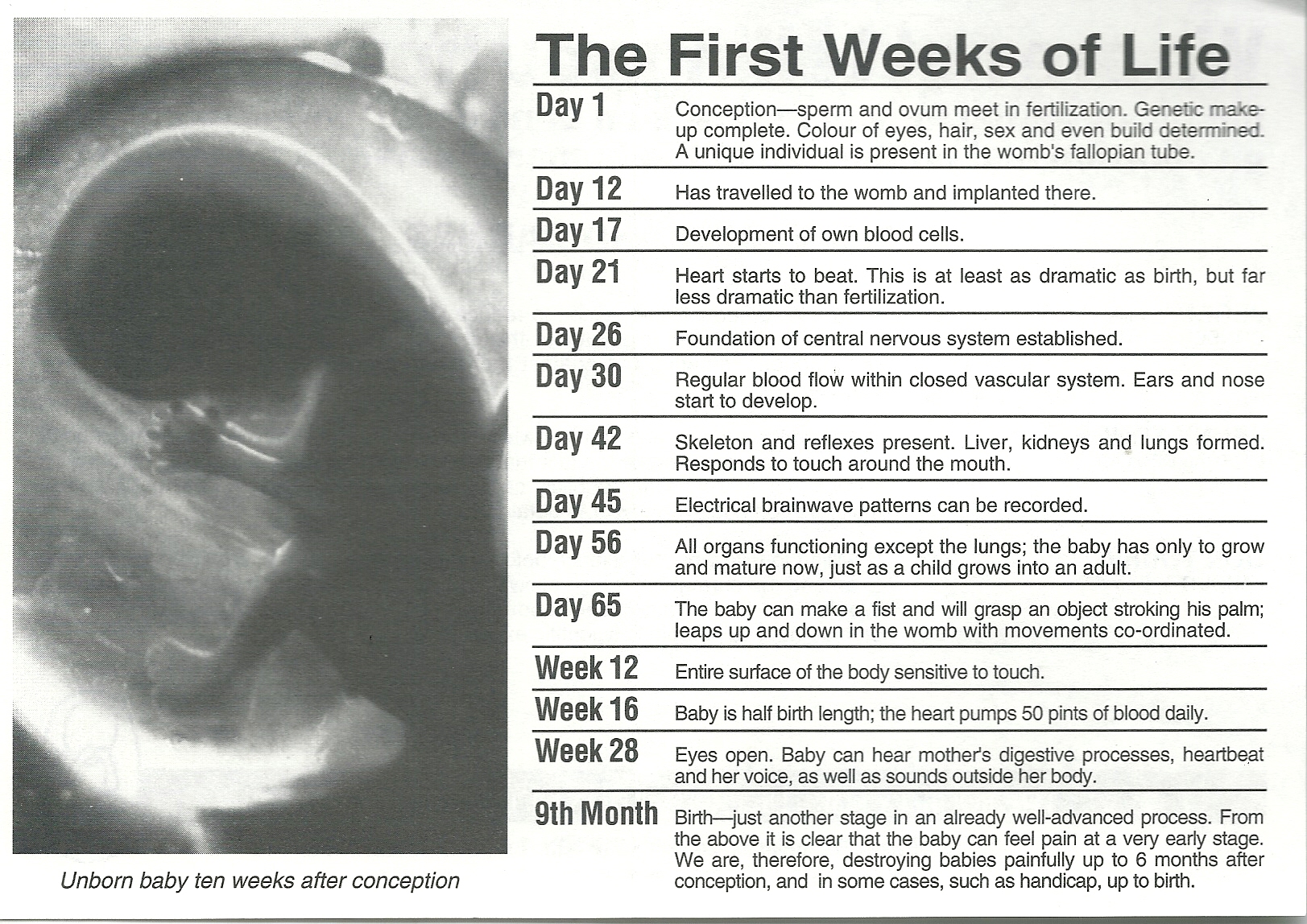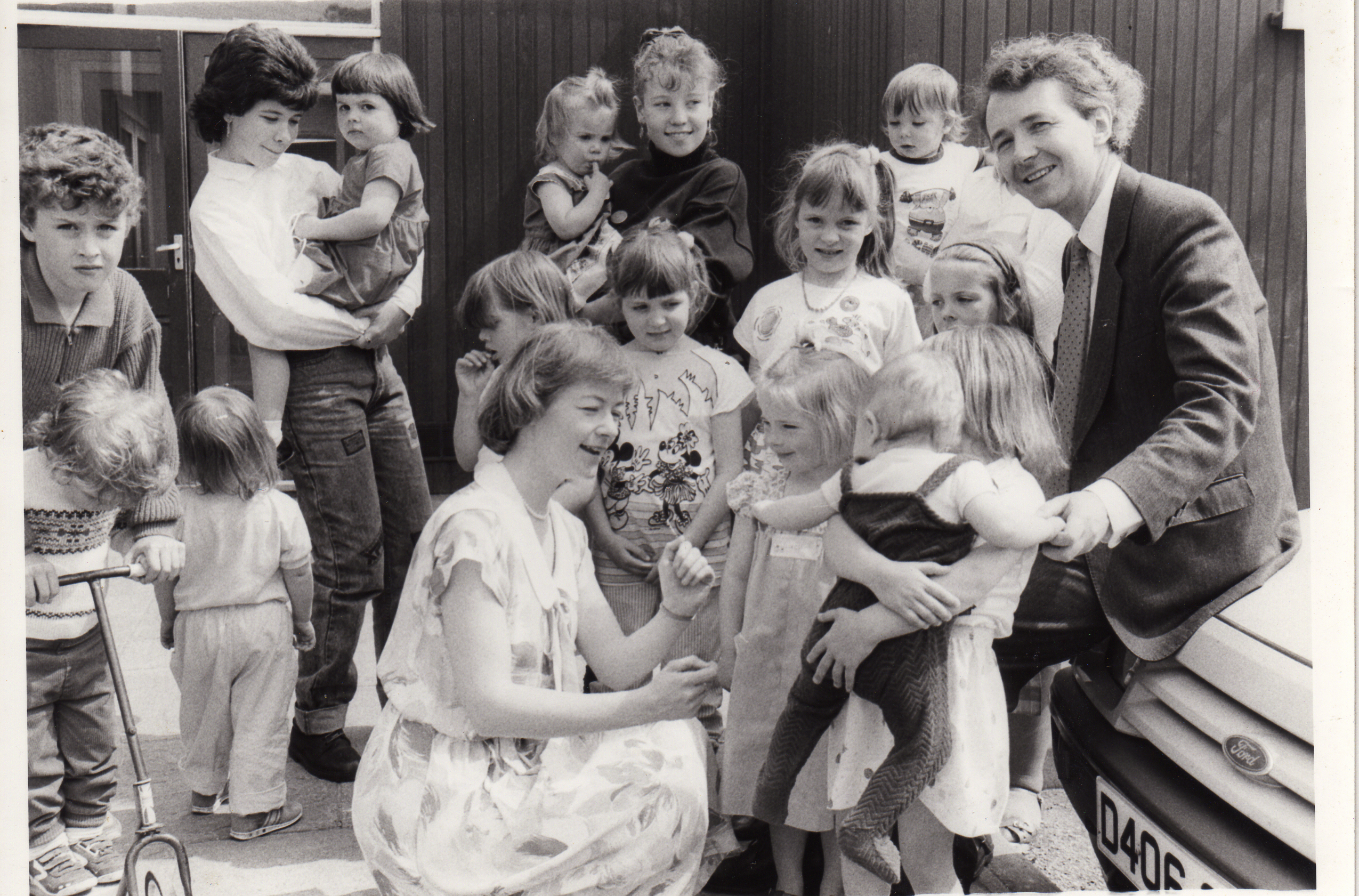
NOT IN OUR NAME – Join the campaign against the Royal College of Midwives support of abortion-on-demand up-to-birth campaign.
UK abortion provider BPAS have launched a campaign to legalise abortion-on-demand, up-to-birth, for any reason. (For more information on this see <http://www.righttolife.org.uk/comment-opinion/abortion-up-to-birth/ or add organisation’s own article on proposals>)
This campaign is being supported by a number of pro-abortion lobby groups but surprisingly includes the Royal College of Midwives. This extreme abortion up-to-birth position has been adopted without any consultation with members of the College whatsoever.
We need your help to change this and send a clear message to any other groups that BPAS are lobbying to support the campaign, that their membership will revolt if they decide to support this extreme position.
IF YOU ARE A MIDWIFE, MATERNITY SUPPORT WORKER OR STUDENT MIDWIFE
1/ Put your name to the joint NOT IN OUR NAME open letter that will be sent to the Royal College of Midwives voicing midwives’ concern about the lack of consultation on this extreme policy and demand that the RCM revoke their support for the campaign to legalise abortion up-to-birth for any reason.
Click here to sign the joint letter.
2/ Once you have signed the joint letter, also contact the Royal College of Midwives directly, voicing your concern about this policy
Click here to contact the Royal College of Midwives
3/ Get the word out – Let all your friends who are midwives know about this extreme abortion-to-birth position and ask them to take the above steps ASAP.
4/ Let the public know about how uncomfortable you are with this new policy – write to your local newspaper, share your concern on social media – and let the Royal College of Midwives know about your concerns on their Twitter accounts and Facebook pages.
IF YOU ARE FROM THE GENERAL PUBLIC
1/ Contact the Royal College of Midwifes and voice your dissatisfaction about the policy and the lack of consultation, and demand that they revoke it. Remember to be polite and reasonable. If you are looking for some good points to make in your correspondence, check out the open letter here: http://bit.ly/notinournameuk
Click here to contact the Royal College of Midwives
2/ Get the word out – Let all your friends who are midwives, maternity support workers or student midwives know about this extreme abortion-to-birth position and ask them to take the above steps ASAP.
3/ Let the public know about how uncomfortable you are with this new policy – write to your local newspaper, share your concern on social media – and let the Royal College of Midwives know about your concerns on their Twitter accounts and Facebook pages.
————————————————————————–

February 2016
What does it say about our laws that this man has just been given life for killing his son in utero by beating up the mother with intent to kill the baby after she refused to abort while 8 million unborn babies can be killed in their mother’s wombs and we say that’s just a matter of choice.
Incidentally, he was convicted for child destruction (Infant Life Preservation Act, 1929) which is part of the suite legislation governing abortion BPAS have just announced that they are trying to repeal.
————————————————————————–
The Upside Down world where Goldfish are provided with life saving surgery but the unborn child is routinely done to death and contrast this with the calls to legaise infanticide:
Two stories: the first from May 2015…
http://www.bbc.co.uk/news/uk-england-bristol-32683349
A goldfish has undergone a 45-minute operation in Bristol to remove multiple tumours from around its eye and back.
The five-year-old fish, named Monty, had to be put under general anaesthetic for the “very delicate” £200 procedure.
Vets used water soluble anaesthetic to knock the goldfish out before operating to remove its eye.
Sonya Miles, who assisted in the operation, said: “Monty is doing exceptionally well at home and is acting as if nothing has happened.”
The Highcroft Veterinary Group said the tiny fish had been in a “very bad way” when it was brought into its Whitchurch hospital.
And despite the “tumour extending further than expected”, the surgery had gone “swimmingly”.
“He was a brilliant patient and the surgery went very smoothly from start to finish,” said Ms Miles.
“We don’t perform surgery on goldfish very often but we are seeing a definite increase in veterinary treatment in fish generally,”
———————————————————————————————————————————————————————————————————————————————–
While we intervene to save the life of a goldfish ethicists tell us that killing new born babies is no different from abortion,
Parents should be allowed to have their newborn babies killed because they are “morally irrelevant” and ending their lives is no different to abortion, a group of medical ethicists linked to Oxford University has argued.
By Stephen Adams, Medical Correspondent
The article, published in the Journal of Medical Ethics, says newborn babies are not “actual persons” and do not have a “moral right to life”. The academics also argue that parents should be able to have their baby killed if it turns out to be disabled when it is born.
The journal’s editor, Prof Julian Savulescu, director of the Oxford Uehiro Centre for Practical Ethics, said the article’s authors had received death threats since publishing the article. He said those who made abusive and threatening posts about the study were “fanatics opposed to the very values of a liberal society”.
The article, entitled “After-birth abortion: Why should the baby live?”, was written by two of Prof Savulescu’s former associates, Alberto Giubilini and Francesca Minerva.
They argued: “The moral status of an infant is equivalent to that of a fetus in the sense that both lack those properties that justify the attribution of a right to life to an individual.”
Rather than being “actual persons”, newborns were “potential persons”. They explained: “Both a fetus and a newborn certainly are human beings and potential persons, but neither is a ‘person’ in the sense of ‘subject of a moral right to life’.
“We take ‘person’ to mean an individual who is capable of attributing to her own existence some (at least) basic value such that being deprived of this existence represents a loss to her.”
As such they argued it was “not possible to damage a newborn by preventing her from developing the potentiality to become a person in the morally relevant sense”.
The authors therefore concluded that “what we call ‘after-birth abortion’ (killing a newborn) should be permissible in all the cases where abortion is, including cases where the newborn is not disabled”.
They also argued that parents should be able to have the baby killed if it turned out to be disabled without their knowing before birth, for example citing that “only the 64 per cent of Down’s syndrome cases” in Europe are diagnosed by prenatal testing.
Once such children were born there was “no choice for the parents but to keep the child”, they wrote.
“To bring up such children might be an unbearable burden on the family and on society as a whole, when the state economically provides for their care.”
However, they did not argue that some baby killings were more justifiable than others – their fundamental point was that, morally, there was no difference to abortion as already practised.
They preferred to use the phrase “after-birth abortion” rather than “infanticide” to “emphasise that the moral status of the individual killed is comparable with that of a fetus”.
Both Minerva and Giubilini know Prof Savulescu through Oxford. Minerva was a research associate at the Oxford Uehiro Centre for Practical Ethics until last June, when she moved to the Centre for Applied Philosophy and Public Ethics at Melbourne University.
Giubilini, a former visiting student at Cambridge University, gave a talk in January at the Oxford Martin School – where Prof Savulescu is also a director – titled ‘What is the problem with euthanasia?’
He too has gone on to Melbourne, although to the city’s Monash University. Prof Savulescu worked at both univerisities before moving to Oxford in 2002.
Defending the decision to publish in a British Medical Journal blog, Prof Savulescu, said that arguments in favour of killing newborns were “largely not new”.
What Minerva and Giubilini did was apply these arguments “in consideration of maternal and family interests”.
While accepting that many people would disagree with their arguments, he wrote: “The goal of the Journal of Medical Ethics is not to present the Truth or promote some one moral view. It is to present well reasoned argument based on widely accepted premises.”
Speaking to The Daily Telegraph, he added: “This “debate” has been an example of “witch ethics” – a group of people know who the witch is and seek to burn her. It is one of the most dangerous human tendencies we have. It leads to lynching and genocide. Rather than argue and engage, there is a drive is to silence and, in the extreme, kill, based on their own moral certainty. That is not the sort of society we should live in.”
He said the journal would consider publishing an article positing that, if there was no moral difference between abortion and killing newborns, then abortion too should be illegal.
Dr Trevor Stammers, director of medical ethics at St Mary’s University College, said: “If a mother does smother her child with a blanket, we say ‘it’s doesn’t matter, she can get another one,’ is that what we want to happen?
“What these young colleagues are spelling out is what we would be the inevitable end point of a road that ethical philosophers in the States and Australia have all been treading for a long time and there is certainly nothing new.”
Referring to the term “after-birth abortion”, Dr Stammers added: “This is just verbal manipulation that is not philosophy. I might refer to abortion henceforth as antenatal infanticide.”
——————————————————————————————————————————————————-
So we have these two stories two stories – one about an operation on a goldfish to remove tumours and one from Oxford academics saying a newborn baby has no right to life. In a twisted irony these two rights and no-rights have vied for the same space at the same time before – they recall the decision by the Liberal Democrats (on the same day at their conference in Harrogate in 1992) to pass a Resolution calling for protection, among other things, for goldfish being sold at fun fairs and in amusement arcades, while passing a Resolution to extend the abortion laws, rescinding the traditional “conscience” right of every member to come to their own conclusions about the taking of the life of an unborn child: http://www.independent.co.uk/news/uk/politics/the-liberal-democrats-in-harrogate-proabortion-vote-is-final-blow-for-alton-1551441.html
Perhaps when a goldfish swims up the Thames demanding that we protect the most vulnerable of the human race we will wake up to the illogicality and the disproportionality of some of the causes we embrace and the priorities on which we insist.
———————————————————————————————————————————————————-
———————————————————————————————————————————————————–
Question in Parliament about the demolition of an Ahmadiyya Muslim mosque in Daska
Lord Collins of Highbury, the Foreign,...

